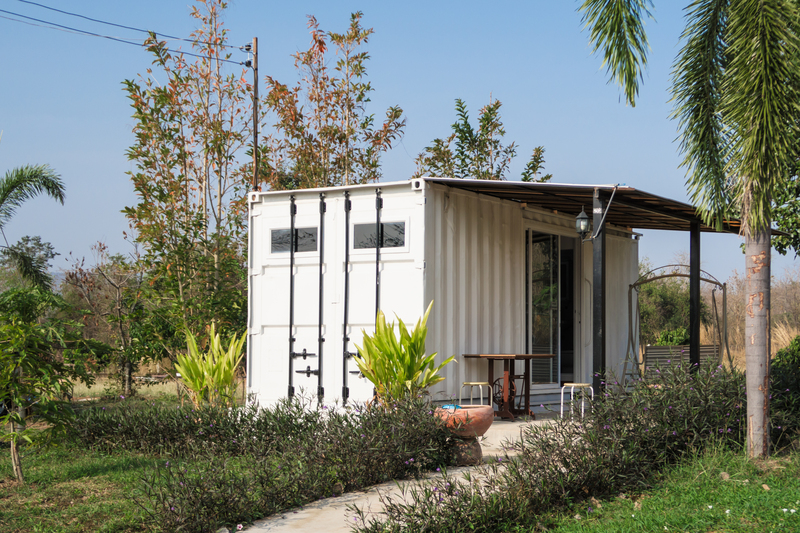All You Need to Know About Pots and Pans Recycling Programs
Cooking is a daily ritual in many households, but have you ever wondered what happens to your old, worn-out pots and pans? Discarding them in the trash is not the most environmentally friendly choice. Fortunately, pots and pans recycling programs offer a sustainable solution. In this comprehensive guide, we'll explore everything you need to know about recycling cookware, explaining the processes, benefits, key considerations, and options near you.
Why Recycle Pots and Pans?
When kitchen ware reaches the end of its lifespan, it often ends up in landfills, contributing to metal waste that could otherwise be repurposed. Pots and pans recycling is crucial for several reasons:
- Environmental conservation: Recycling reduces the demand for raw materials, conserving natural resources.
- Energy efficiency: Repurposing metals is less energy-intensive than mining and refining new ones.
- Waste reduction: Recycling programs help decrease landfill usage and mitigate pollution.
- Circular economy: Used cookware, when properly recycled, can be transformed into new products.

Understanding Pots and Pans Recycling Programs
Pots and pans recycling programs are initiatives that enable households and businesses to responsibly dispose of old cookware. These recycling programs for cookware typically involve collection, sorting, and processing to recover valuable materials like stainless steel, aluminum, copper, and occasionally non-metal elements. Let's look in detail at how these programs function and what sets them apart.
How Do Recycling Programs for Pots and Pans Work?
The process generally involves the following steps:
- Collection: Households and restaurants drop off unwanted utensils, or they are picked up during scheduled recycling drives.
- Sorting: Items are sorted by material type (e.g., stainless steel, aluminum, copper). Non-recyclable materials (like plastic handles) are separated out.
- Processing: Metal parts are cleaned and shredded. In facilities equipped to handle nonstick coatings or mixed materials, additional processing may be required.
- Melting and Repurposing: Metals are melted down and reformed into new products, often construction materials, automotive parts, or even new kitchenware.
Materials Accepted in Cookware Recycling Programs
Not all pots and pans are created equal, and thus, not all are recyclable in every program. Here is a rundown of the most commonly accepted items:
- Stainless steel pots and pans
- Aluminum cookware
- Copper-bottomed pots
- Cast iron skillets
- Certain types of nonstick pans – subject to local facility capabilities
- Metal lids and removable handles
Glass, ceramic, and plastic cookware often cannot be recycled through standard metal recycling programs.
Types of Pots and Pans Recycling Programs
There are multiple avenues to recycle pots, pans, and other kitchen items. Here are some of the most prevalent:
1. Local Scrap Metal Yards
Most scrap metal dealers accept common cookware. If you're wondering, "Can I recycle my old pans at a scrap metal yard?" -- the answer is usually yes, particularly if your items are made from pure metal without significant non-metal attachments. Call ahead to confirm accepted materials and guidelines.
2. Municipal Recycling Centers
Some community recycling centers feature drop-off bins specifically for metal household goods, including cookware. Rules vary from city to city, so check with your local waste management authority for guidance. Not all curbside recycling programs accept bulky items like pots and pans, but special collection days or bulky waste pick-up services may include them.
3. Retail Take-Back Programs
Major retailers, such as certain kitchenware stores or big-box chains, occasionally sponsor cookware trade-in or recycling events. Bring your old pots and pans in exchange for discounts on new purchases or for environmentally responsible disposal.
4. Manufacturer Recycling Initiatives
A growing number of kitchenware brands are introducing take-back or recycling programs for their products. These may offer mail-in recycling or partner with retailers to accept used pots and pans. Check the website of your cookware manufacturer for details.
5. Donation and Reuse
While not strictly recycling, donating usable pots and pans to local charities, thrift shops, or shelters extends their life and benefits those in need. Some items may be upcycled into creative projects, giving them a new purpose altogether.
What to Do Before Recycling Your Cookware
To ensure your old pots and pans are ready for recycling, follow these guidelines:
- Clean your cookware. Remove all food residue and grease. Give pans a quick scrub or run them through the dishwasher.
- Remove non-metal parts. Detach plastic handles or lids, as these may be considered contamination in metal recycling streams.
- Check for hazardous materials. Some nonstick coatings, especially Teflon, require special handling. Contact your local recycling center to confirm whether coated pans are accepted.
- Sort by material type. If possible, group your items (e.g., aluminum together, stainless steel together) to streamline processing at the facility.
- Follow your recycling program's instructions. Always review guidelines provided by your local collection site or service provider.
Common Myths About Pots and Pans Recycling
-
Myth: Cookware is too dirty or dangerous to recycle.
Fact: As long as it's been cleaned and stripped of non-metal parts, most metal cookware can be recycled safely. -
Myth: If nonstick or has a coating, it can't ever be recycled.
Fact: Many centers can process nonstick pans. Check with your facility before discarding. -
Myth: Small items like pot lids or handles should go in the curbside bin.
Fact: Metal recycling streams separate these by magnetic sorting, but check with your local provider regarding size restrictions.
Environmental Benefits of Recycling Cookware
Properly recycling your pots and pans offers a host of environmental advantages:
- Reduces the volume of landfill waste.
- Prevents leaching of chemicals from coated cookware in landfills.
- Lowers carbon footprint associated with mining and refining virgin metals.
- Supports a sustainable, circular economy for consumer goods.
Where Can You Recycle Pots and Pans Near You?
Finding a pots and pans recycling location is easier than ever thanks to growing environmental awareness. Here's how to get started:
- Google "pots and pans recycling near me." Most search engines will display local options, ranging from scrap yards to municipal collection events.
- Check your city or county waste management website. Their recycling database will specify acceptable items and drop-off sites.
- Try recycling locator tools: Use platforms like Earth911 or RecycleNation to enter your zip code and find collection sites for cookware.
- Contact major retailers who may host cookware recycling events or ongoing take-back programs.
- Call local thrift shops or donation centers to see if gently used kitchen items are accepted for reuse.
Tips for Locating Cookware Recycling Programs
- Plan ahead: Collection events may be seasonal or annual, so prepare to hold onto items for the next scheduled day.
- Combine trips: Bring all your old metal household items in one load for efficiency.
- Store properly: Keep bulky items in a safe place, away from moisture or rust, until ready for drop off.
Can All Pots and Pans Be Recycled?
While metal-based pans and pots are accepted at most programs, some varieties are more challenging:
- Nonstick pans: Older or heavily damaged nonstick pans may not be recyclable everywhere due to coating concerns.
- Ceramic, glass, and stoneware: These materials are rarely accepted at metal yards. Try donation or upcycling as alternatives.
- Hybrid items: Cookware with significant wood, glass, or plastic components can be rejected by scrap yards.
- Induction cookware: The magnetic base is typically steel or iron and IS recyclable once separated from non-metallic parts.
When in doubt, consult your local recycling center for specific rules on pots and pans recycling.
Upcycling Old Cookware: Creative Alternatives to Recycling
If your pans can't be recycled or donated, consider these fun, eco-friendly upcycling ideas:
- Garden planters: Drill drain holes, fill with soil, and plant flowers or herbs.
- Home decor: Turn decorative pans into wall art, clocks, or bird feeders.
- Storage: Use large pots for organizing tools, craft supplies, or magazines.
Upcycling reduces waste and can add unique flair to your home or garden.

Frequently Asked Questions (FAQ) About Cookware Recycling Programs
Do all recycling centers accept pots and pans?
No, not all centers accept cookware. Always contact the facility in advance to confirm.
Will recycling programs accept nonstick or Teflon pans?
Some programs do, but others don't due to the chemical coating. Remove as much coating as possible or find a center prepared to handle these materials.
What should I do with broken ceramic or glass cookware?
These cannot go in metal recycling; donate if reusable, or check special recycling programs for ceramics and glass.
Can I put old pots and pans in curbside recycling?
Rarely. Most curbside bins are not equipped to process these items. Use specialty drop-off locations instead.
Is donating better than recycling?
If your pots and pans are still usable, donation extends their life and benefits others. Recycling is a solid second option for damaged or non-functioning cookware.
Conclusion: Embrace Sustainable Kitchen Habits
Recycling your old pots and pans is an easy, impactful way to reduce waste and support a greener planet. Whether you utilize local recycling programs, retailer initiatives, or manufacturer take-back schemes, your actions embody sustainable kitchen stewardship. As awareness of cookware recycling continues to grow, so do the opportunities for responsible disposal -- and creative reuse -- of all your kitchen essentials.
The bottom line: Do your part by seeking out pots and pans recycling programs in your area, choosing sustainable options when purchasing new cookware, and spreading the word about responsible kitchen waste management. Small steps in your kitchen today create a cleaner, healthier world for tomorrow.
Ready to recycle your cookware? Start by searching "pots and pans recycling programs near me" and take your first step toward a more sustainable lifestyle today!